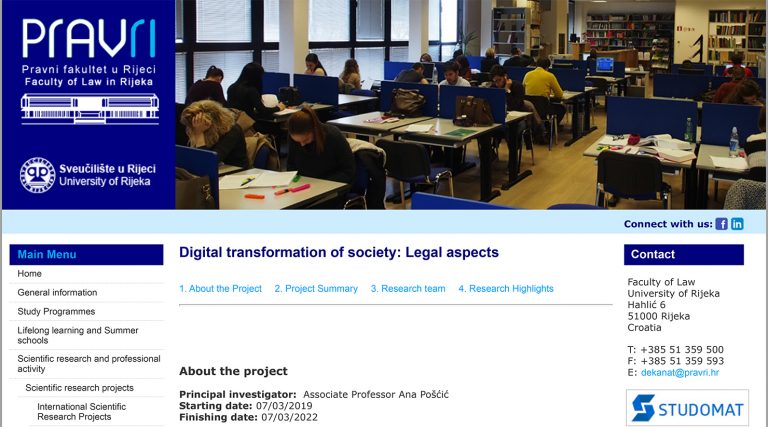
Digitalisation transforms and accelerates not only the ways of doing
business, but also the ways of thinking. Unprecedented interconnectedness and
access in the cyberspace, where everything is available at the touch of a
finger, give rise to many issues concerning the transfer and impact of new
technologies from the digital world on social relations in the ‘real’ world.
There is a dichotomy between accelerated development of digital world and
limited capacities of institutions, communities and individuals to absorb these
seemingly unlimited possibilities in the real world. The purpose of law is to
create legal certainty. Digitalisation erases traditional space – time divide
on which the law depends and without which its purpose is at risk.
Current legal knowledge has only began to grasp the rapid development and
digital transformation of society. Further research is needed to provide the
basis for elaboration of well-planned regulatory policy and legal framework in
the Croatian and european context. This project gathers scholars in the area of
EU, constitutional, labour, social, family and criminal law, as well as
linguistics, with the aim of identifying specific legal challenges and
suggesting possible solutions. The plan is to enable synergical flow and link
research results in various selected areas in which law and technology
meet.
Digitalisation benefits the economy: digital market knows no boundaries and
changes economic paradigms. Competitive economy transforms to sharing economy.
Legal framework is not adapted to economy based on sharing. Risks of digital
transformation primarily affect labour market, since many jobs become
automated. Work relations are the binding force of any society. Changes in the
world of work will dictate the destiny and future development of social systems
and family relations, as well as the application of constitutional principles
and traditional procedural guarantees in the digital transformation of society.